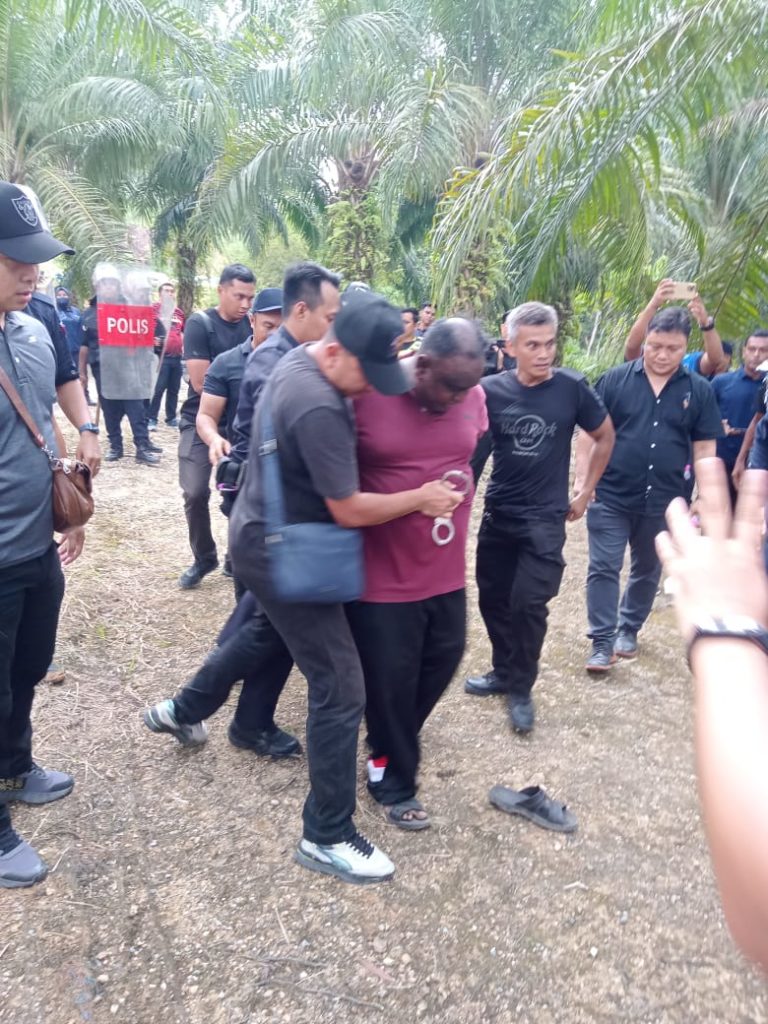PAN Asia Pacific (PANAP) condemns the eviction of farmers from their farmland in Kanthan, Tambun, Perak by Malaysian authorities last October 24 that resulted in the arrest of three activists and one local farmer, physical assault of one female protester, and damages to farmlands.
On the said date, the Perak Land and Mines Office accompanied by the police went to the site with demolition equipment. Dr Jeyakumar Devaraj, 68, president of Parti Sosialis Malaysia (PSM), Karthiges Manickam, 42, Ho Pon Tien, 53, and Kesavan Parvathy, 30, were arrested as they set up a blockade to stop the clearing of the farmland. They were later released by the police.
Enforcement officers also reportedly shoved Chong Yee Shan, another PSM leader, breaking her teeth. The authorities ignored the victim’s state and pushed on with the demolition. On top of these human rights violations, the eviction damaged crops and irrigation facilities.
PANAP denounces the violent demolition as a grave violation of the farmers’ right to land. Over 200 farmers cultivate the Kanthan farmland. They are third-generation farmers from families who have worked on the lands and made them productive since before the second World War. Along with other farmers in the state of Perak, they draw their historical claim in cultivating the lands from the government’s campaign to utilize idle lands for food production regardless of the status of land ownership in line with ensuring food security in the 1970s. Additionally, after an offer of land lease in 2012 did not materialize, the Kanthan farmers and the local government arrived at an agreement wherein the farmers were allowed to continue their farming activities, and that alternative lands should be provided in the event that they are ordered to vacate.
The farmers received an eviction notice last October 13, instructing the farmers to vacate the area after a week. The notice was served despite Perak State Development Board’s (Perbadanan Kemajuan Negeri Perak or PKNP) failure to provide a relocation site, which is another clear violation by the authorities.

We find it unacceptable that the eviction of farmers is meant to convert the farmlands to residential and industrial sites. In line with the national government’s development paradigm, PKNP proposed and implemented the construction of Silver Valley Technology Park 2 (SVTP 2), a 190.2 ha industrial complex in Kanthan believed to spur investments in the manufacturing and digital sector. SVTP 2 is an integral component of the Northern Corridor Economic Region under the Strategic Development Plan 2021-2025. Farmers claim that with the implementation of the project, the government has intensified its efforts to evict farmers. As of 2022, 11 areas in Perak face threat of eviction.
Such callous action in favor of corporate interests is a blatant attack on the people’s food security. Kanthan produces about 50 to 60 tonnes of produce a day, including corn, brinjal, ladies’ fingers, long beans, water lily, a variety of leafy vegetables, and oil palm. As PSM noted, Malaysia only has a small percentage of land allotted to growing vegetables and statistics show that Malaysia spends USD 2.30 billion to import fruits and vegetables, while exports of fruits and vegetables are worth USD 593 million, resulting in a trade deficit of USD 1.71 billion. The whole state of Perak is recognized as an important source of vegetable supply, and even freshwater fish, in the country. The state’s produce is sent to other states to fulfill the citizens’ food requirements.
For years, farmers have fought against these evictions. They have continuously pushed for the protection and promotion of productive land for the welfare of farmers and small food producers and Malaysia’s food security. They have criticized the Malaysian government’s current development paradigm which marginalizes the peasantry and erodes food security.
PANAP stands in solidarity with the Kanthan farmers in their assertion for their productive land rights. We support their demand to the local authorities in Perak to immediately halt all forced evictions and instead hold a dialogue with the farmers to arrive at a solution that reflects the interests of the affected farmers and communities.#








Discussion about this post